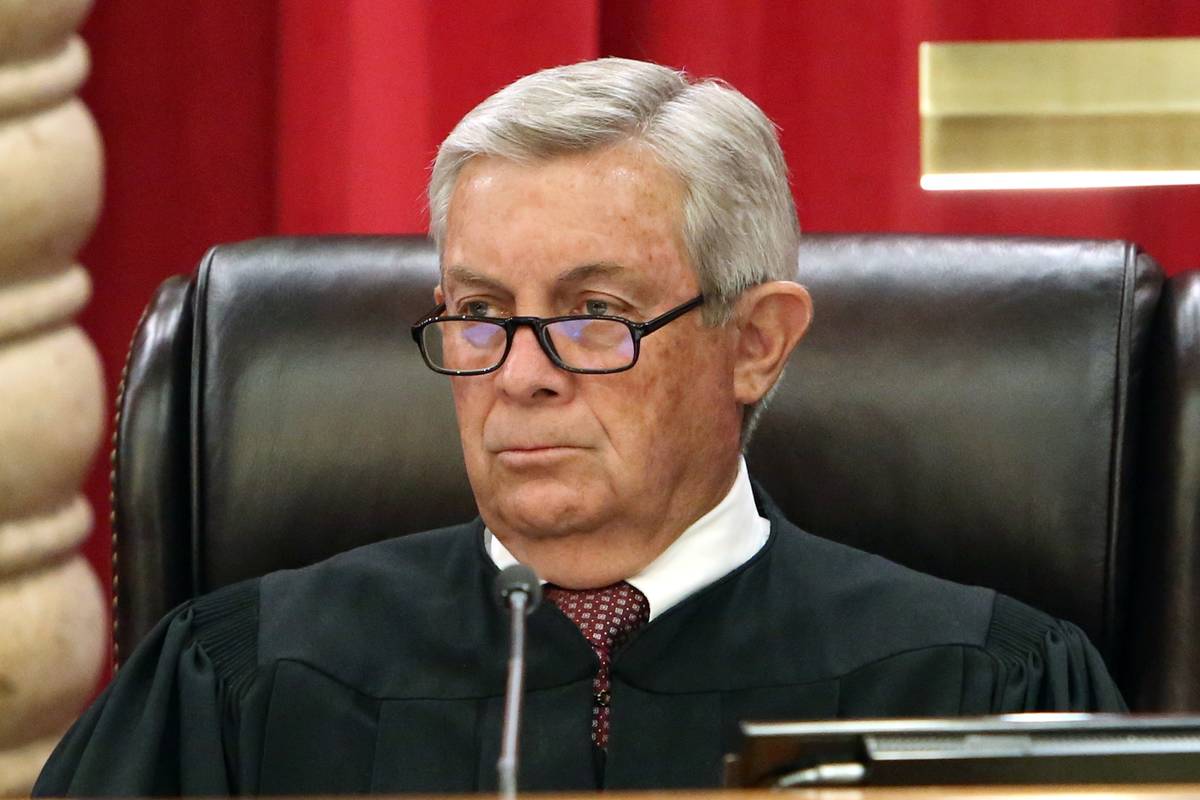Nevada Supreme Court delivers ‘sea change’ decision on bail
The Nevada Supreme Court issued a new set of standards for monetary bail in a decision Thursday that could result in sweeping changes in the court system.
The 6-to-1 decision established a series of factors that must be in place before a cash bail decision is made, urging judges to steer away from the monetary system when possible.
The court’s ruling, authored by Justice James Hardesty, called for a prompt hearing to consider bail and stated that prosecutors “must prove by clear and convincing evidence that bail, rather than less restrictive conditions, is necessary to ensure the defendant’s appearance at future court proceedings or to protect the safety of the community.”
Judges, the decision continued, must consider a defendant’s financial resources, with other factors, and then lay out their “findings and reasons for the bail decision on the record.”
‘Sea change decision’
Deputy Public Defender Christy Craig, who argued the case with Nancy Lemcke, called the ruling a “sea change” that could result in nonviolent offenders and poorer defendants being released on their own recognizance rather than sitting in jail because they cannot afford to post bail.
“What common sense does that make, to spend that kind of money to hold somebody?” Craig said. “I think it’s a good decision for the taxpayers of Clark County, too.”
The decision stemmed from bail set for Aaron Frye and Jose Valdez-Jimenez after they were indicted on felony charges. The two since have pleaded guilty and been sent to prison, but the high court considered their argument as because it was “a matter of public importance and is capable of repetition but evading review.”
Craig said she and her fellow public defenders had submitted hundreds of similar petitions through the courts before Thursday’s decision was handed down.
“We were so pleased because we felt like it was the right decision,” she said. “We felt like we were on the right side of this.”
Clark County District Attorney Steve Wolfson said the ruling could result in a procedural impact on his office and the court system, but he vowed to continue to push for keeping defendants in violent crimes behind bars while they await trial.
“If you’re a flight risk or a danger to the community, you should be in custody,” Wolfson said. “If you’re not, you should be out. At the end of the day, the analysis doesn’t change much, but some of the processes that are going to be utilized are tweaked.”
Judges must make findings
The high court ruled that judges should continue considering a defendant’s “character and ties to the community, his or her criminal history, and the nature of and potential sentence for the alleged offenses.”
Veteran criminal defense attorney Robert Langford, who has pushed for bail reform with the Nevada Legislature, lauded the decision.
“A judge actually having to make findings as to why they’re doing that is huge,” he said. “That’s huge.”
Craig had argued that setting a bail meant a judge agreed that a defendant was not a danger to the public, but poorer people remained behind bars because they could not afford to make payments. “Logically that didn’t make any sense,” she said.
Dissenting opinion
Justice Kristina Pickering wrote a seven-page dissent, saying that because the defendants since have pleaded guilty and been sent to prison, the court should have considered their petition moot.
“To be clear: I agree with my colleagues as to the importance of prompt and constitutionally conducted pretrial detention and release decisions,” she wrote. “But Valdez-Jimenez’s and Frye’s bail proceedings took place in Clark County’s justice and district courts in 2018.”
The decision came down as more and more defense attorneys ask judges to release jailed defendants in the wake of the coronavirus outbreak. Next week, the Nevada Sentencing Commission, headed by Hardesty, is set to discuss how to prevent the spread of communicable diseases in the criminal justice system.
Wolfson said his office has considered relaxing jail time for nonviolent offenders, but “serious people should still be detained. Our analysis on serious cases isn’t changing.”
Contact David Ferrara at dferrara@reviewjournal.com or 702-380-1039. Follow @randompoker on Twitter.























